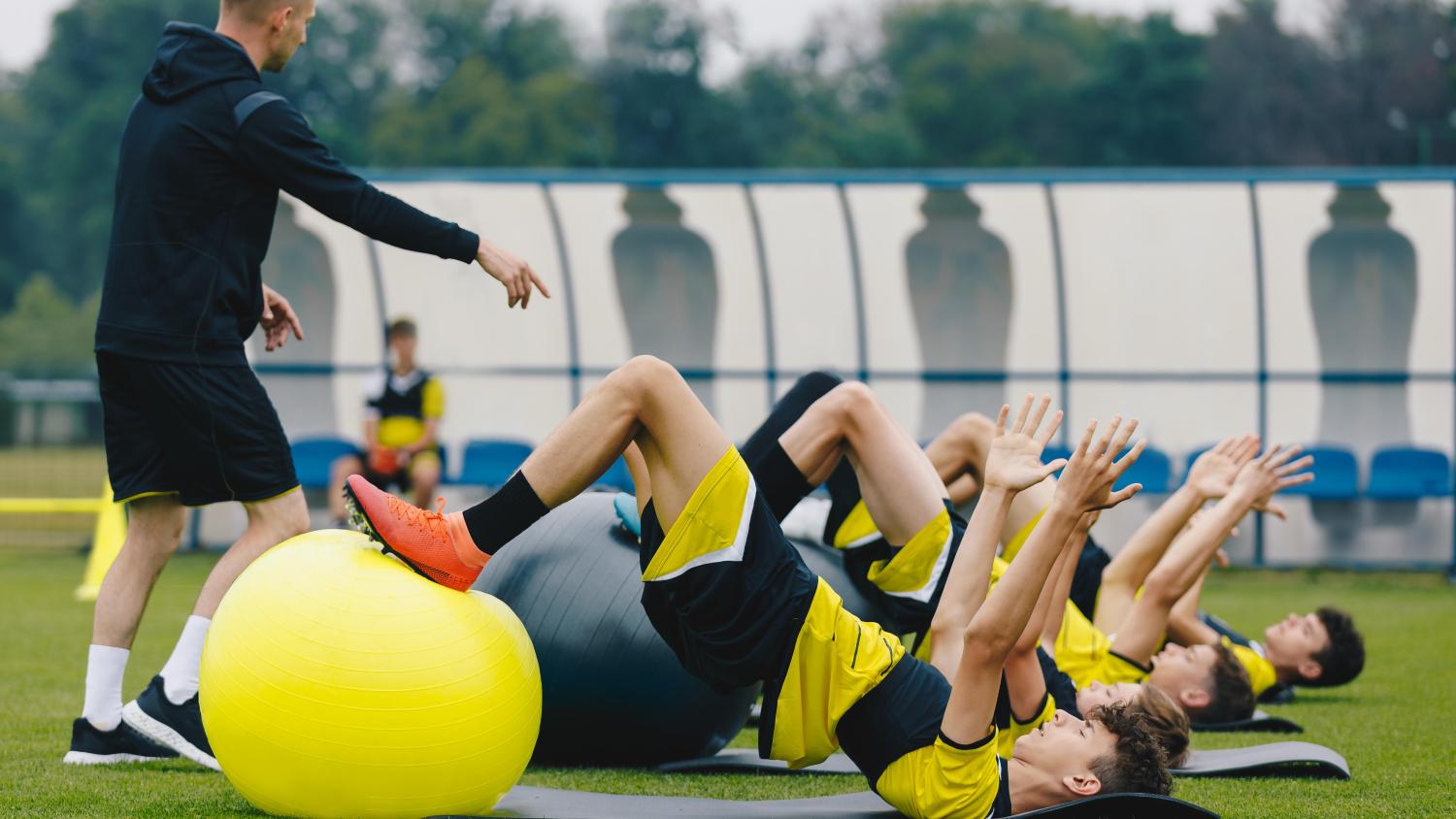Soccer is a strenuous sport. Unless you are a goalkeeper or a certain world champion from a certain South American country known for walking the field, should be prepared to run somewhere between six to nine miles per game.
All this effort is sure to take a toll on your body. Whether you are a professional, college, or amateur player, those stretches (no pun intended) of the soccer calendar when games are held every three days are when recovery cannot be overlooked. Coaches not only expect their players to come into the season in shape but also to maintain that fitness throughout the sometimes ten-month season.
Eventually, the repetitiveness of exercise and the physical demand involved can affect your performance or even worse, cause an injury that can put you out of service for several weeks.
However, nobody needs to get to that point.
It is crucial to understand the importance of a recovery routine after and in between games as it is a great way to stay in top form and more importantly, reduce the chances and risks of picking up a knock.
With proper care and attention, players can help minimize the risks of injury and maintain their fitness. A key aspect of recovery is proper nutrition, especially refueling with protein-based foods to help rebuild and repair tired muscles and bones. And a good source of protein is peanuts, which are packed with nutrients and provide sustained energy for athletes.
We consulted with dietitian nutritionist Leslie Bonci for some great tips and tricks to help soccer players recover the right way. And remember, recovery occurs over a number of hours so you don't need to complete all the tips below right after your exercise.
The top 7 recovery tips for soccer players
#1 Cool-down
Cooling down goes beyond just pouring cold water on your wrist to regulate your body temperature. It is also equally important to do some sort of low-intensity workout after a match or workout.
Nowadays, it is more and more common to see soccer players diving into cold tubs for recovery. According to the experts, this cool-down process allows one to improve blood circulation and helps to reduce muscle inflammation and joint swelling which in turn will help decrease injuries.
#2 Hydrate
You don't need to be an elite athlete to understand the importance of drinking water. However, after physical activity such as a soccer game, liquids are even more crucial.
Through sweat, the body loses minerals. Therefore, you need to get them back. Water, sports drinks, and even delicious smoothies are perfect ways to accomplish the mission.
And how can you not be tempted by this Blueberry Peanut Smoothie? If that one doesn’t do it for you, have no fear, we are in the process of compiling a list of our favorite nutritious shakes and smoothies.
Dietitian nutritionist Leslie Bonci sums up the importance of a correct hydration process explaining that, "It impacts strength, speed, stamina, and recovery and also decreases the risk of injury. When the body is not well hydrated, the risk of heat injury goes up big time, as well as the risk of soft tissue injury."
#3 Refuel
Your body does not only need water after a game but also food.
Food is essential for recovering the energy consumed during a game and replenishing your internal storage bins for future physical activity.
According to Bonci, the sooner you start eating, the better.
"The enzymes within the muscles are very receptive to starting that refueling process literally as soon as you stop exercising. Within 30 minutes, something. It's not a meal. It's a little teaser," she said.
Leslie points out that different food groups could help avoid body malfunctions. For example, she suggests optimizing the intake of fruits and vegetables "from an anti-inflammatory perspective" while the perfect intake of proteins "reduces bone and muscle injury."
Peanut is a good source of protein and a few snacks like these Thai Peanut Chicken Tacos or these Fruit Kabobs with Yogurt Peanut Butter Dip could be extremely helpful.

Bonci finally recommends not eating too close to sleeping time. "Do not eat an hour to an hour and a half before bed, so your stomach has time to empty and it's not wide awake when I'm trying to sleep."
#4 Stretch out
After a game, it would be best to not become a sack of potatoes on your couch. Pull the brakes slowly.
Experts recommend that you keep the body moving. You can try a light jog, some aquatic exercises if you have access to a pool, an aerobic session, yoga, or any other low-impact physical activity with a "regenerative" label on its name should get the job done. The main objective here is to improve circulation and reduce muscle soreness.
A massage? Yes, please.
#5 Get a hyperbaric chamber
OK, maybe not an easy one.
Sports science is a fast-growing field and hyperbaric chambers seem to be one of its poster children. These machines are becoming so trendy that several international stars have one at their houses, considering the benefits they promise.
These chambers help prevent soft tissue injuries or promote a faster recovery in damaged muscles, which is huge for any athlete.
Of course, not everybody has a light $10,000+ in their pockets to invest in one, but clubs are starting to have them as part of their essentials. And if your club doesn't have one, you can search online for treatments for around $50 to $150 per session.
#6 Chill and rest
Video game sessions are not recommended ways of achieving this. There’s too much stimulation in these activities.
The idea is to go for a nice book, and maybe do some breathing exercises or meditation even. These will prepare your body for the last and best method to recover your body.
And the best part? It’s natural!
#7 Sleep
Go for the old reliable recipe of eight hours of sleep.
Sometimes this could be hard with late-night games and trying to unwind after a high-tempo match. Or maybe it is the adrenaline involved during the exercise, but either way, every expert in the matter would say that it is essential to rest and regenerate the muscles and the body in general before going back out on the field again.
And nothing can be better than a good and complete sleeping session.

Conclusion
Overall, soccer players run more on average than any other sports athlete. Of course, some positions run more than others, research shows that midfielders run the most and goalkeepers run the least (no surprise there).
No matter the level of play, you may find yourself in a tournament setting where recovery is crucially important. Dietitian nutritionist Leslie Bonci taught us the importance of “being proactive, preventative, and protective.” She continued, “you're not going to be on the field in a suit of armor, that's not very practical, so your suit of armor is more inside. Am I bringing the least injury-prone player to the field with the things that I can control?”

 Home
Home
